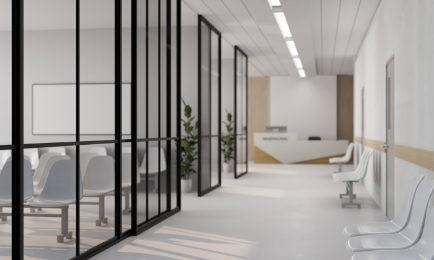An Overview Of The Jordanian Health Sector
| First open heart surgery | 1970 |
| The first kidney transplant | 1972 |
| The first heart transplant | 1985 |
| The first stem cell transplant | 1985 |
| First IVF baby | 1987 |
| The first bone marrow transplant | 1995 |
| The first cochlear implant surgery | 1998 |
| The first liver transplant | 2004 |
| First transcatheter aortic valve implantation | 2009 |
| The first operation to separate Siamese twins | 2021 |
Jordan has become a destination for treating patients from all countries, as Jordan hosts more than 250,000 patients annually from all over the world to benefit from Jordan's therapeutic and hospital advantages, and the total income generated from medical tourism exceeds one billion dollars annually.
One of the most important factors that encourage patients to choose Jordan is the availability of high quality medical services at competitive prices. Jordanian hospitals provide treatment packages for the most demanding operations for medical tourism.
You can view the medical packages by visiting the website:www.salamtak.gov.jo
Jordanian manpower
Jordan is one of the countries that spends the most on education and workforce development.
Jordan has the highest literacy rate in the Middle East, with a literacy rate of 95%.
Jordan outperforms most countries in the world in the rate of availability of different health personnel in relation to the population.

Hospitals
There are currently (121) hospitals in Jordan that provide services to Jordanian and non-Jordanian patients. The number of private hospitals is (71) hospitals, while government hospitals number (33) and the military (15) hospitals and (2) university hospitals.
These hospitals offer various medical specialties to patients, including cardiology, neurology, orthopedics, pediatrics, cancer treatment, infertility treatment, eye diseases, cosmetology, psychiatry, addiction and other medical specialties.
Air ambulance
Among the most important medical achievements in Jordan is the establishment of the Jordanian Air Ambulance Center at the behest of His Majesty King Abdullah II, to contribute to strengthening medical ambulance services in Jordan. The Air Ambulance Center transports emergency medical cases and medical cases resulting from accidents in remote and remote areas to advanced hospitals in Amman. By using aircraft equipped with medical equipment, the medical team can provide intensive and focused medical care during ambulance flights.
The latest technology and medical devices
Private hospitals in Jordan contain the latest treatment technologies and advanced devices that help detect and treat many diseases such as magnetic resonance imaging, computed tomography, advanced catheterization centers that are used as an alternative to surgery in the treatment of some diseases, nuclear medicine, advanced laser devices for the treatment of various eye diseases, and fragmentation devices. Pebbles and infertility treatment.
Pharmaceutical industries
The Jordanian pharmaceutical industry has clearly developed over the past decades, and the number of pharmaceutical companies in Jordan has reached 23. The Jordanian pharmaceutical industry contributes positively to supporting the national economy, as it is considered a major operator and a leading export industry and a major tributary to the Jordanian economy, as it contributes positively to reducing the balance deficit. Commercial, and due to their high quality and good reputation, these companies were able to export the Jordanian medicine to more than 70% of its production to more than 70 countries on different continents.
The Jordanian medicine is distinguished by its conformity to Jordanian and international specifications in terms of quality, safety and efficacy, as well as its competitive price. Jordanian pharmaceutical companies produce all pharmaceutical forms and cover most of the therapeutic groups.




